The movies give us much to get excited about every year, but perhaps the greatest thrill lies in discovering talents we didn’t know existed twelve months ago. To that end, 2018 has been a banner year: not only has it consolidated the stardom of some of last year’s breakthrough actors – consider Millicent Simmonds’ transition from arthouse renown (Wonderstruck) to blockbuster stardom (A Quiet Place), for example – it’s also introduced us to fresh new faces, equally brimming with potential. Whether they’re playing awkward teens or powerhouse pop stars, these rising stars are evidence that a very, very bright cinematic future lies ahead. We celebrate 18 of the year’s most promising new talents below:
Lady Gaga
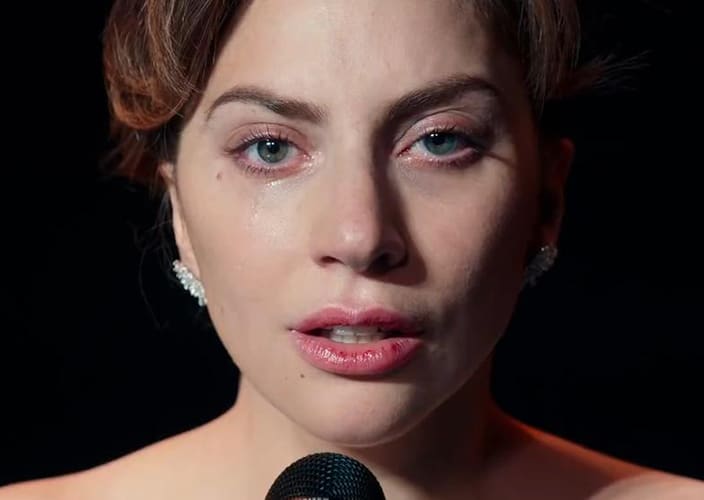
It feels like it’s ten years too late to be describing Lady Gaga as a breakout. But household name though she may be, that is what her self-referential turn in A Star is Born has made her – and in fact, it’s perhaps even a little surprised it took a full decade to get her here. This is the global icon who has built her celebrity on blurring the line between pop star and performance artist, after all; how much more natural could a career jump be?
As Ally, the rising star to Bradley Cooper’s falling one, Gaga traffics in her own real-life myth, solidifying and evolving it in the process. She brings an engrossing dynamic to the character, one that A Star is Born would’ve been far poorer without. Seeing her in those early scenes, getting ragged on by the boss in her low-pay waitressing gig, she’s not just convincing within the confines of the film (she is very convincing in this respect); you get the feeling this could actually be the latest inspired iteration in a long line of carefully cultivated bold personas, all the bolder because it’s so stripped-down; so uncultivated. (Gaga stans might recognize Ally as the natural stepping stone from the “Joanne” era.)
Ally is indisputably overshadowed by Cooper’s character, who gets all the dirt and grit, but Gaga manages a canny coup of the film nevertheless. While Cooper as director and actor plainly harbors a disdain for Ally’s evolved stardom – to Jackson and Cooper, her electro-ballad pop songs make her a shameless sell-out – Gaga shares in none of their snobbery. That’s evident in her character’s pop songs, all of which Gaga co-wrote: although the movie is quick to sneer at SNL-era Ally, the soundtrack is a record of just how anti-elitist a position Gaga has taken in seriously considering Ally’s artistry. While that’s only fully appreciable on the album, it is discernible in her movie performance, making her a kind of secret co-author of the film. That she’s proved herself more than keen to carry the rebellious streak that has characterized her decade-long musical career through to her acting work makes Lady Gaga a fascinating one-to-watch.
Lana Condor
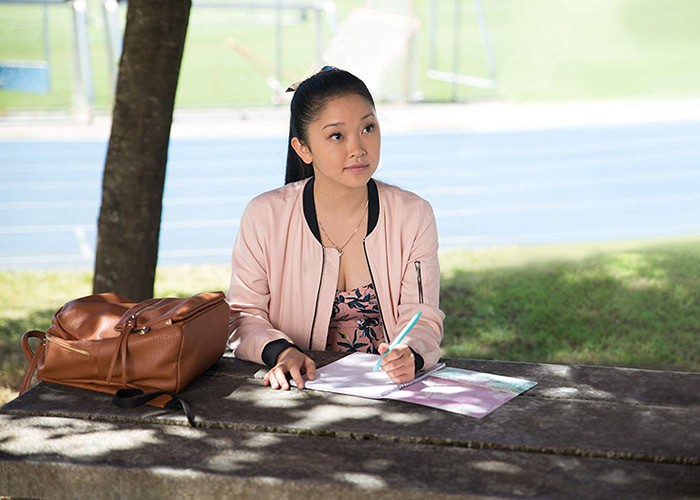
Lana Condor is something of a poster girl for one of this year’s most significant cultural achievements: the revitalization of the teen romance genre. In her hands, Lara Jean Covey, the letter-writing hero of To All the Boys I’ve Loved Before (one of a triumvirate of outstanding YA romcoms this year, the others being Love, Simon and Blockers) is both relatable and genuinely aspirational, the latter quality is the key to the genre’s renewed appeal.
As our own review notes, Condor has clear comedic flair: she plays Lara with a naturalistically nervy energy that ensures she’s accessibly quirky but that – crucially – never contradicts her confidence. There’s a gratifying charm to the film that it owes entirely to Condor, too: while Noah Centineo’s breakout turn has won him much of To All the Boy’s afterglow, his character comes off far better with the reflected sweetness of Condor’s performance than it would without. Upcoming action roles might not traffic in that particular brand of charm, but Condor will undoubtedly prove an equally luminous presence, no matter the genre.
Next seen in: Deadly Class (TV), Alita: Battle Angel
Adriano Tardiolo
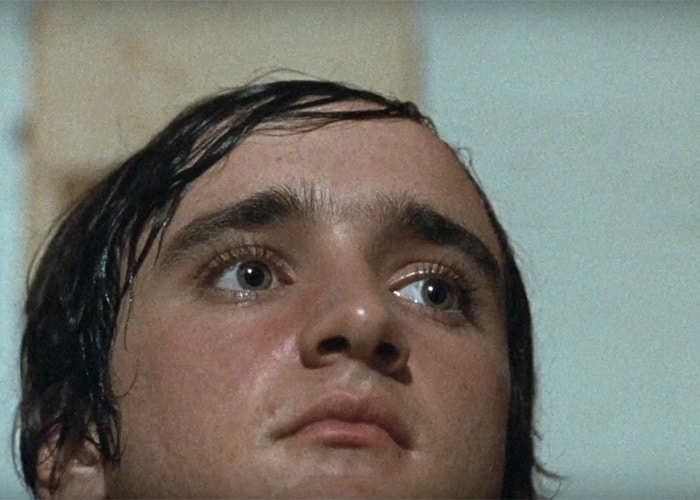
The one constant in Alice Rohrwacher’s beguiling Happy as Lazzaro is Adriano Tardiolo. As Lazzaro – a meek, uncorrupted miracle of a boy, totally without guile – Tardiolo remains with us, unchanged, even as the very fabric of the film mutates before our eyes, its realist foundations giving way to otherworldly fabulist happenings. That audacious shift only really works because of the newbie actor, who ties the disparate portions of the film together by way of a performance that, even before the movie veers into overtly fantastical realms, radiates a decisive air of the unreal; the near-holy. Tardiolo’s wide eyes and ethereally serene disposition are utterly hypnotic, instantly conveying something so exceptionally rare in the real world that it feels like a divine miracle we know how to recognize it: pure goodness.
It’s somewhat a miracle in itself that Tardiolo appeared in Happy as Lazzaro at all: he instinctively declined when first offered the part by Rohrwacher, before eventually – blessedly – coming round to the idea. Having demonstrated a beatific knack for connecting to audiences’ primal morality with more looks than words, it’s likely he’ll be receiving a fair few more offers in the near future.
Joanna Kulig
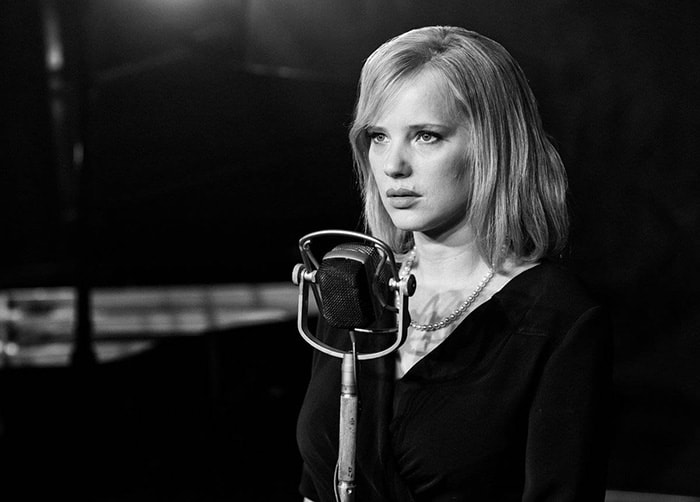
Some breakout performances are slow-burners: their magic ticks by, only coming into full view when the credits roll. Joanna Kulig’s fiery, smokily-sexy turn as one half of a star-crossed pair in Paweł Pawlikowski’s gorgeous mid-century romance Cold War is decidedly not that kind of performance. Her immense magnetism is recognizable the instant we first meet her as Zula, the impetuous urban youth conning her way into a folk music troupe by way of a heart-wrenching movie ballad, and her electric pull only surges as her character evolves: first into fêted star of the Soviet bloc, then a major fixture on the Parisian jazz club scene, and, finally, a world-weary industry has-been back East. In each of these eras, there’s an inspired improvisational quality to her performance that makes it difficult to discern where Zula ends and Kulig begins (the mark of a true star-making performance).
Given the film’s ‘50s setting and its throwback boxy, monochrome visuals, Kulig is a perfect fit for Cold War, her performance viscerally evoking as it does the kind of screen magnetism we associate with Hollywood’s Golden Age. Indeed, there’s more than a passing resemblance between Kulig and a handful of actors whose indelible marks have been impressed on the cinematic psyche: Marilyn Monroe, Liv Ullmann, and Jeanne Moreau. Just as with watching the early performances of those three, Kulig’s mesmerizing turn in Cold War gives you a hunch that there will be much, much more to come.
Next seen in: Hanna (TV), Safe Inside
Stephan James
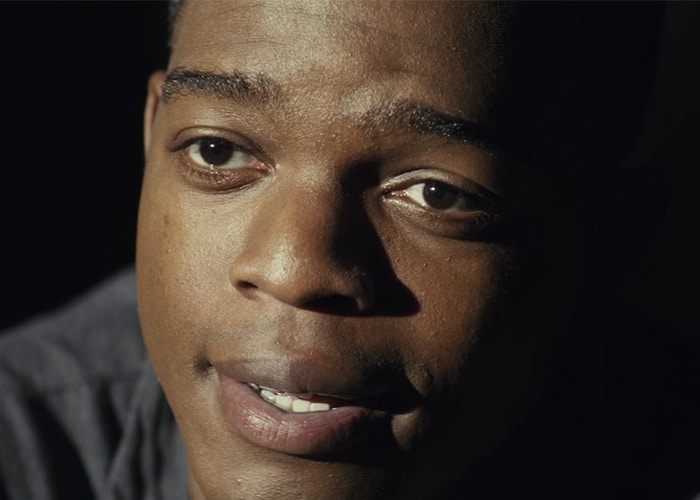
Prior to 2018, Canadian Stephan James was perhaps best known for playing Olympic medallist Jesse Owens in 2016’s middling-at-best sports biopic Race. This year has boosted his profile hugely: not only does he take the lead in Barry Jenkins’ Best Picture follow-up If Beale Street Could Talk, but he also stars opposite Julia Roberts, no less, in Sam Esmail’s Homecoming, itself one of this year’s greatest gifts.
In Esmail’s series, James is a warm, self-possessed presence, not an easy impression to make opposite America’s sweetheart. Together, the natural likeability of both actors makes for sparkling viewing, their instant, electric chemistry acting as a crucial energy source for the show. Beale Street suggests that kind of effortless charm is a boundless superpower of sorts for James: his early scenes with onscreen girlfriend Tish (KiKi Layne, another breakout) are so full of wordless intimacy that the two seem locked in a dreamlike dance of tender looks and softer touches, as if they really are just about to begin their lives together. Cruelty and injustice take their toll on the couple, though, demanding a more emotionally diverse performance from him than Homecoming perhaps does; with tragic poignancy, James sensitively expresses the near-decimation of his character’s hope and resilience. You get the sense that even a display of talent as profound as his performance in Beale Street is only a small sample of James’ potential.
Next seen in: 17 Bridges
Geraldine Viswanathan
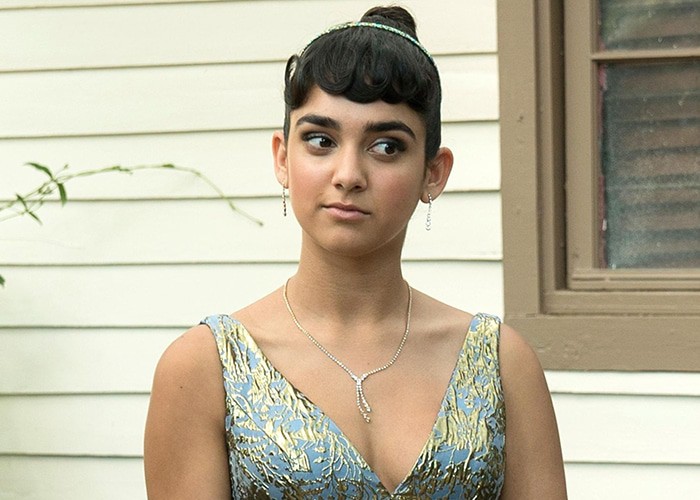
As our own Blockers review notes, one of the most unexpected things about Kay Cannon’s sex-positive teen comedy is that its young female cast vastly outshines their more seasoned onscreen parents. Amongst this talented teen trio, one, in particular, proves an even further stand-out: Australian actor Geraldine Viswanathan, who plays Kayla, the most easy-going of the three girls. Because she’s so chill, Viswanathan is a balm in Blockers, deftly providing the film with the dry wit required to counter the frenzied goofiness of her older cast-mates. She’s also the feminist foil Blockers needs to make plain just how nonsensical its parental characters’ attitudes towards female sexuality are; as the most enlightened of the three, it’s Kayla who embodies the film’s thesis by delivering a collapsing blow to her father’s oppressive beliefs: “God, why is sex even bad?!”
That scene is one of the film’s quiet stand-out moments, not just because it brings Blockers’ inter-generational conflict to a head, but because it suggests that gentle, heart-warming reconciliation lies on the other side. That the comedically-gifted Viswanathan also manages to leave a dramatic impression in her ability to shoulder Blockers’ serious message bodes well for her next project – Hala – the themes of which bear a remarkable similarity to her character’s struggle here.
Next seen in: Miracle Workers (TV), Hala
Thomasin Harcourt McKenzie
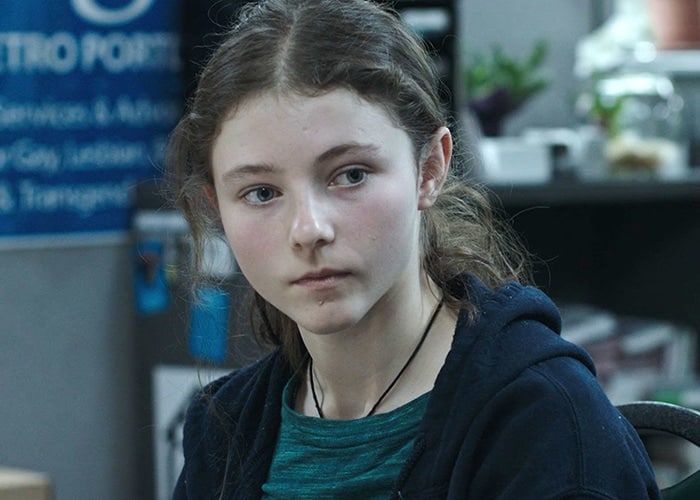
Ben Foster’s turn as a single father living off-grid in Debra Granik’s Leave No Trace may well be his best yet, but even that tour de force takes a backseat to the one New Zealand actor Thomasin Harcourt McKenzie puts in as his teen daughter Tom. Calling hers a coming-of-age performance might give the wrong impression – McKenzie’s turn is less informed by the archetypal erratic energy of youthful rebellion than it a quiet, resolute confidence that seems to belong to someone older than her years – but in that subversion of expectation lies evidence of her brilliance.
Beginning at the point in which the pair are forcibly evicted from their man-made refuge in the Portland rainforest, we watch Tom gradually unfold in increments before our eyes, seeming to grow just as organically as her beloved flora. Father and daughter being a duo of few words, McKenzie’s primary tools in conveying the growing rift between the two are her face and her voice; a slight involuntary tremor that runs through the latter suffusing what scarce words she does speak with a kind of minimalist potency.
There’s considerably less physical drama between the two performances, it’s true, but McKenzie’s breakthrough calls to mind another of Granik’s great acting finds: Jennifer Lawrence. Appropriately, McKenzie’s schedule already looks to be as promisingly crowded as Lawrence’s was post-Winter’s Bone, with at least four major roles to come in 2019 (including a part in Taiki Waititi’s World War Two satire Jojo Rabbit).
Next seen in: The King
Zain Al Rafeea
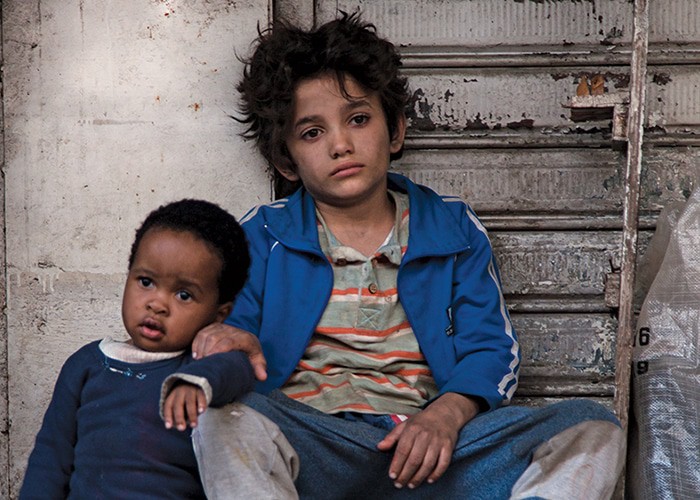
Syrian refugee Zain Al Rafeea’s debut performance in Capernaum recalls something of the grit and authenticity that distinguished actors like Thomas Turgoose and Katie Jarvis in their own first roles. As with those two performers, there’s a touch of horror in his seeming to be vastly older than his years; not just in the superficial ways – the keen grasp of curse words, the premature awareness of human biology – but in a deeper sense, too, as if Al Rafeea is already a star pupil in the school of hard knocks. As with Jarvis and Turgoose, Al Rafeea was plucked from obscurity by a director keen on matching the social realism of their film with an authentically-drawn performance, and he certainly delivers on that end, imbuing Capernaum with an uncanny – at times uncomfortable – sense of documentary.
Part of that will undoubtedly come down to his own familiarity with his character (also called Zain): until his family was granted political asylum in Norway earlier this year, Al Rafeea was working as a supermarket delivery boy on the same dusty Beiruti streets Zain labors in. But there is too much evidence of real, remarkable talent here to put his triumphs entirely down to the facts of his biography. His performance as tragedy-toughened street urchin Zain seems more reflexive than recitalist: every cheeky cry of “fuck off!” or exasperated appeal to his adoptive sibling (Boluwatife Treasure Bankole) – whose own performance, incidentally, is grounds for a new technical Oscar for Best Baby Wrangler – feels like it’s born of organic impulse rather than someone else’s direction. Two haunting scenes revolving around Zain’s younger sister (Haita Izzam) stand out for what they reveal of Al Rafeea’s emotional intelligence, too, and his ability to suggest the existence of raw childlike emotion suppressed underneath that fiercely defensive little shell.
After witnessing a performance this viscerally emotional – and particularly after learning his own story – it almost feels cruel to wish to see Al Rafeea onscreen again. Whether he returns to acting or pursues other dreams (his real ambition, apparently, lies in opening a pigeon shop), the potent poignancy of his performance in Capernaum won’t be forgotten anytime soon.
KiKi Layne
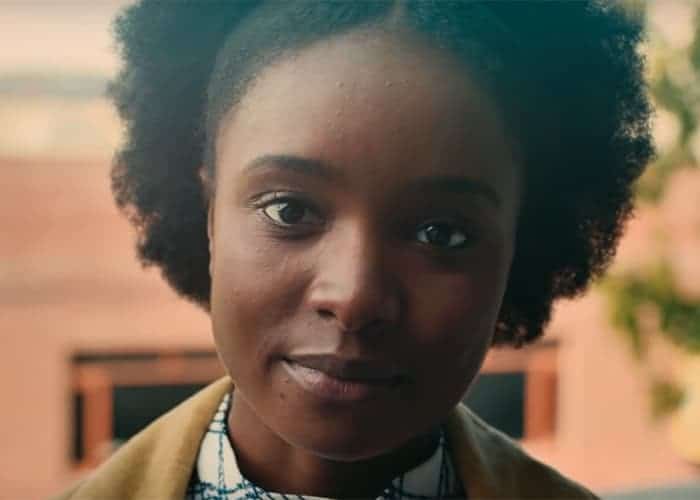
Part of the magic of Moonlight lies in its casting, all three Chirons being played by actors who were, at the time, relative unknowns – only for their compelling performances in Jenkins’ Oscar-winner to upend all that. While Stephan James had already enjoyed some big-screen success before taking the lead in Beale Street, we get the sense that Jenkins’ movie will have a similarly transformative effect for its other star, KiKi Layne. As with Moonlight’s cast, she is a major discovery: it’s Layne who is granted the gift of delivering some of Baldwin’s most eloquent lines via a gentle, film-spanning voiceover, but even – especially – in her character’s wordless moments, her performance is just as eloquent. Given just who the original author of Beale Street is, that’s something special.
Next seen in: Captive State
The post The Best Breakout Performances of 2018 appeared first on Film School Rejects.

0 comments:
Post a Comment